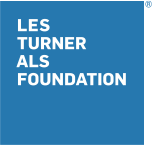Overview
Amyotrophic Lateral Sclerosis (ALS) or Lou Gehrig's Disease
At the Lois Insolia ALS Clinic at the Les Turner ALS Center at Northwestern Memorial Hospital, we have extensive experience diagnosing and treating amyotrophic lateral sclerosis (ALS), also known as Lou Gehrig’s disease, and provide access to some of the leading ALS clinical trials in the country. Northwestern Medicine offers Edaravone and Tiglutik—two FDA-approved ALS treatment options.
Amyotrophic lateral sclerosis (ALS) is a progressive neurological disorder affecting the nerve cells in the spinal cord and brain. It is also known as Lou Gehrig's disease, named after the famous baseball player whose career ended prematurely as a result of the disease.
ALS attacks the neurons that transmit messages from the brain and spinal cord to the voluntary muscles (the muscles you can control). Motor neurons degenerate or die, and as this happens, they stop transmitting messages to the muscles.
Over time, the muscles weaken, atrophy (waste away) and twitch. While the brain gradually loses the ability to control voluntary movement, ALS does not impact mental functioning, such as sight, hearing or comprehension.
The two main classifications of ALS include:
- Familial: This form of ALS affects 5 to 10 percent of people with the disease. Genetics are believed to play a role in the development of this form of ALS.
- Sporadic: This is the most common form of ALS, accounting for 90 to 95 percent of all cases. This form of the disease is random, not hereditary and the cause is unknown.


